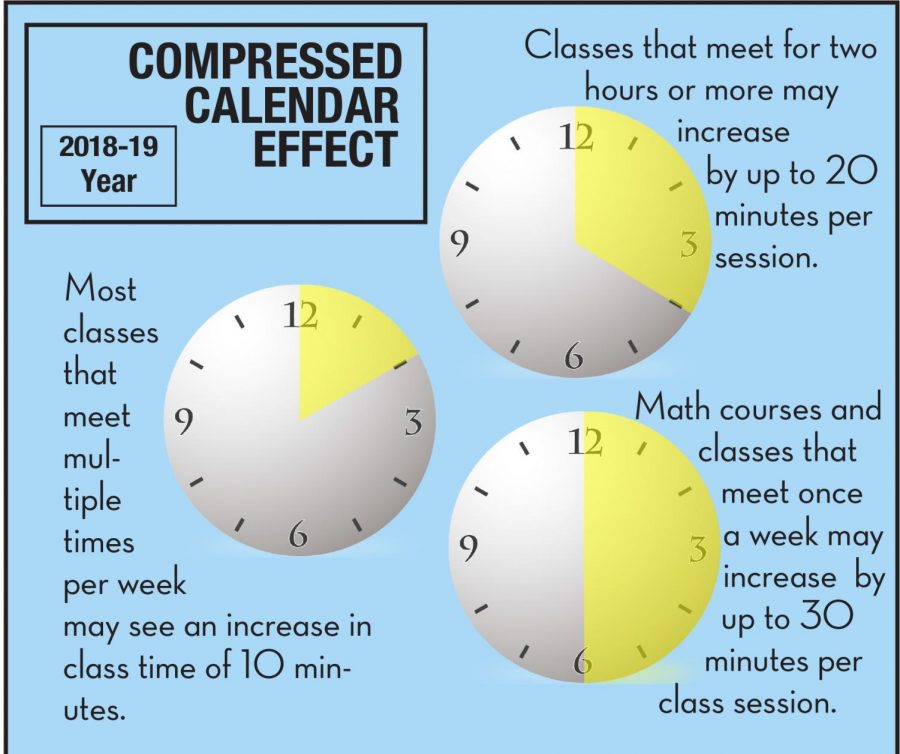Compressed calendar extends classes
Shifts from 18 to 16 weeks alters classtime minutes
Oct 30, 2017
With the final draft of the 2018-19 academic calendar released, discussions on building the course schedule for the fall and spring semesters take precedent.
The compressed calendar, which will be implemented districtwide in 2018-19, reduces the semester length by two weeks causing necessary adjustments to instructional hours and the number of days per week courses are offered.
“The length of some courses could increase by four to five minutes,” Contra Costa College Academic Senate President Beth Goehring said. “It could be 20 to 30 minutes for courses that meet only once a week or for math courses.”
One move by the United Faculty to help alleviate the increase in course hours is the change in productivity during Finals Week.
What used to be a week off for students to prepare for their finals, instead will be a week of instruction, with finals given on the last class session of the semester.
“We needed that extra week to make a 16-week calendar,” Goehring said. “Without the changes to Finals Week, we would’ve had to push to a 17-week calendar.”
Following the Education Code established by California legislation, under Title V each course unit is required to have a specific number of in-class hours and a set amount of student work in correspondence with the credit hour calculation.
The California Community Colleges Board of Governors is responsible for approving regulations which are implemented in compliance with California Community College Chancellor’s Office.
“For example, with the increase in minutes, if a course met for two hours and 40 minutes, it would add a little time and instead be two hours and 55 minutes,” Goehring said. “There is also a good possibility for courses such as chemistry with a lab to meet Monday, Wednesday and Friday.”
When creating the course schedule, faculty use pre-existing templates which include boxes for the courses that meet five times a week, four times a week and three times a week.
Faculty then fill in the template as desired to establish continuity and to gauge course minutes and potential overlapping.
“We will still have the basic block schedule that makes it easier for students to enroll in multiple classes,” Contra Costa College Vice President Ken Sherwood said. “The primary difference is extending the minutes and unit load to now fit into 16 weeks of instruction.”
Limited on the number of work hours in a day, Sherwood said staff and faculty have been working diligently and already have a zero draft for the 2018 fall semester.
“Most classes will start at 8 a.m., with labs starting at 7:50 a.m.,” he said. “It’s really the math and science courses and labs that need more time, so we are starting them earlier.”
UF Vice President for CCC Jeffrey Michels said the biggest issues have been cramming instruction, now based around minutes, into an equivalent to the course units.
“It’s hard to spread activities out over just 16 weeks,” Michels said. “For faculty who have a set schedule of how to operate, this really changes the playing field.”
There are still things that need to be worked out, Michels said. “We aren’t sure what the impact will be.”


